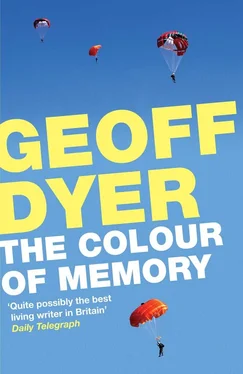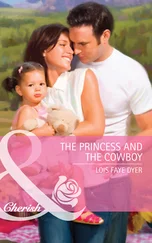‘Silly prick,’ she said as he drove off.
‘Shit, Fran,’ I said. ‘You’ve got to be careful with people like that.’
It was a clear but cool day. Fran was wearing a red woollen hat and a grey raincoat which she always called her ‘famous blue raincoat’ — she had gone through a Leonard Cohen phase a few years back — because it was torn at the shoulder.
‘Anyway, it’s a good job we hadn’t eaten these,’ she said, pulling a polythene bag out of her coat pocket. ‘Things might have got really out of hand.’
‘Are they what I think they are?’
‘Yes,’ she said pouring out half the contents of the bag and handing them to me. The rest she tipped into her mouth. Wrinkling up her face she pulled a can of coke from another pocket — I was beginning to wonder how many pockets that coat had — opened it and took a big, frothing gulp.
The sky was pale blue as if showing through a gauze of cloud so thin as to hardly be there at all. It was neither summer nor autumn. The sun had none of the intenstity of summer but the trees were still thick with green leaves. A strong wind came and went. As we walked by the edge of the Common there was barely a breeze. Then we came up on a large tree hissing and writhing. At our level there was still only the very faintest of breezes, as if the wind existed only in the twisting leaves and rocking branches. Green with time, a large statue of a woman offering a drink to a lame man had been erected in front of the tree. The man was seated; with one hand the woman helped him drink, the other rested lightly on his shoulder.
We walked on. The Common stretched out vast and flat before us. Up ahead a line of thin trees cast long poles of shadow across the grass. In the distance there was a clump of fertile trees — slightly hazy as in a landscape by Claude Lorrain. The sun flung clouds across the sky. Every few seconds the light changed: now the clouds were flecked with lemon or pink; within a few moments they were turning bruise purple. The ground felt hard under our feet. Fran’s face and clothes were bathed in the brightness of the light; the light of the sun burned in her eyes.
We watched a man with two young children and a dog take a large model of a Sopwith Camel out of the boot of a car. The plane was radio-controlled; twiddling with his hand-set the man taxied the bi-plane along the ground. We watched for about five minutes during which time he sent his children back to the car for spare parts or oil of some sort. Then he tinkered around with the wings and stepped back, pointing the aerial of the hand-set at the plane. It taxied along the ground for a few more yards but didn’t gain any speed. His kids lost interest and were throwing a balsa-wood plane at each other; it caught the wind and looped the loop for a few seconds or just floated before falling quietly back to earth. The man had one more go with his radio-controlled bi-plane but this time it wouldn’t even crawl along the ground.
‘Can’t get it up mate?’ Fran shouted.
‘Jesus Fran! Honestly you’re going to get us killed.’
Clutching it by the tail fin the man dragged the plane back to his car, shouting at the kids to hurry up and making barking noises at his dog. Understandably reluctant to get back in the car — nobody had even thrown him a stick to chase — the dog was still eager to play. The kids were in their anoraks, arms by their side, walking obediently to the car.
We walked back across the Common towards some kind of park buildings — lavatories or storage buildings for the groundsmen. Two young black guys, both carrying smoke canisters of some kind, hopped over the fence and started clambering over the building, every now and then releasing great clouds of red, green and blue smoke. It billowed up in thick palls and then blew away. As the sun sank lower the light became richer and deeper, spreading out in long golden streaks. An angle of honking geese flapped towards these bright strips of light. It was slightly cooler now. I had no idea where I was.
From behind us came the sound of car horns, yelling and bustling. We turned around and saw police scrambling out of a van — first two and then, in quick succession, five or six more — and charging across the grass in the direction of the groundsmen’s building, shouting. Then we saw them jumping over the fence by the park buildings, running through coils and plumes of blue and red smoke. More shouting. As the smoke faded we caught sight of the two kids, both still inside the fence and taken completely by surprise. One turned by the edge of the building but ran straight into two cops who pulled him to the ground before he even had time to struggle. A cop lunged at the other one but he swerved just out of reach and started running hard for the fence. The cop was yelling ‘Head him off, Ron!’ The fence was more than three feet high and the young guy cleared it without breaking stride. Another cop was running towards him as he ran along by the fence, heading for the open park. Running at full tilt the young guy tripped over one of the stanchions and went flying. The cop was only a matter of yards away as he began to pick himself up. By the time he got to his feet the cop was within a foot of him and stretching out an arm. For several seconds they seemed to stay exactly like that but then, unbelievably, the gap between the cop’s hand and the kid’s back seemed slowly to widen as he got into his stride.
‘Go on!’ yelled Fran. ‘Run!’
The cop ran for all he was worth for a few more seconds but with every second the young guy was another couple of feet clear of him.
‘Go on, you’ll make it!’ called Fran at the top of her voice.
The cop was running out of steam, a few yards more and he was bent over, heaving for breath. The kid looked round, running more slowly now, heading across the field into the bright sun. He looked around again. We waved and shouted to him. He saw us and waved back, then ran on again, silhouetted and getting smaller and smaller until he could hardly be seen against the last crimson scarves of light.
I decided to buy the trumpet after all. When I called round at Steranko’s to pick it up I found only Foomie sitting on the floor of the Blue Room with a mug of tea steaming beside her, reading. She was wearing one of Steranko’s sweaters.
‘Stay and have some tea,’ she said smiling.
‘I’m not disturbing you?’
‘It’s nice to see you. I don’t know where Steranko is.’
Foomie’s hair was tied up tight in a bun. She was wearing jeans and faded red socks. It was odd seeing her in one of Steranko’s favourite sweaters. While Foomie made more tea I trotted up to Steranko’s room and brought down the trumpet.
The Blue Room was the main living-room of Steranko’s house, so-called because of the painted blue floorboards and the pale blue walls. There was nothing in it except a fire and a small stereo. Foomie put on a record of Flamenco guitar. I poured the tea and opened a packet of biscuits. I took the trumpet from its case and fiddled around with the valves.
‘D’you think you’ll learn to play?’
‘I doubt it.’
We spoke in that relaxed and highly conventionalised way that the friend’s lover and the lover’s friend tend to when they find themselves alone. We were eager to like each other and laughed too quickly at each other’s jokes. We talked about Freddie and about Belinda but the conversation was all the time revolving around Steranko. He both restricted our intimacy and made it possible. There were all sorts of other things we could have said and we avoided all of them.
Instead, Foomie asked what I wanted to do, what kind of work I wanted. I said I didn’t know, that for as long as I could remember I had been living from one conversation to the next, going nowhere slowly.
Читать дальше












